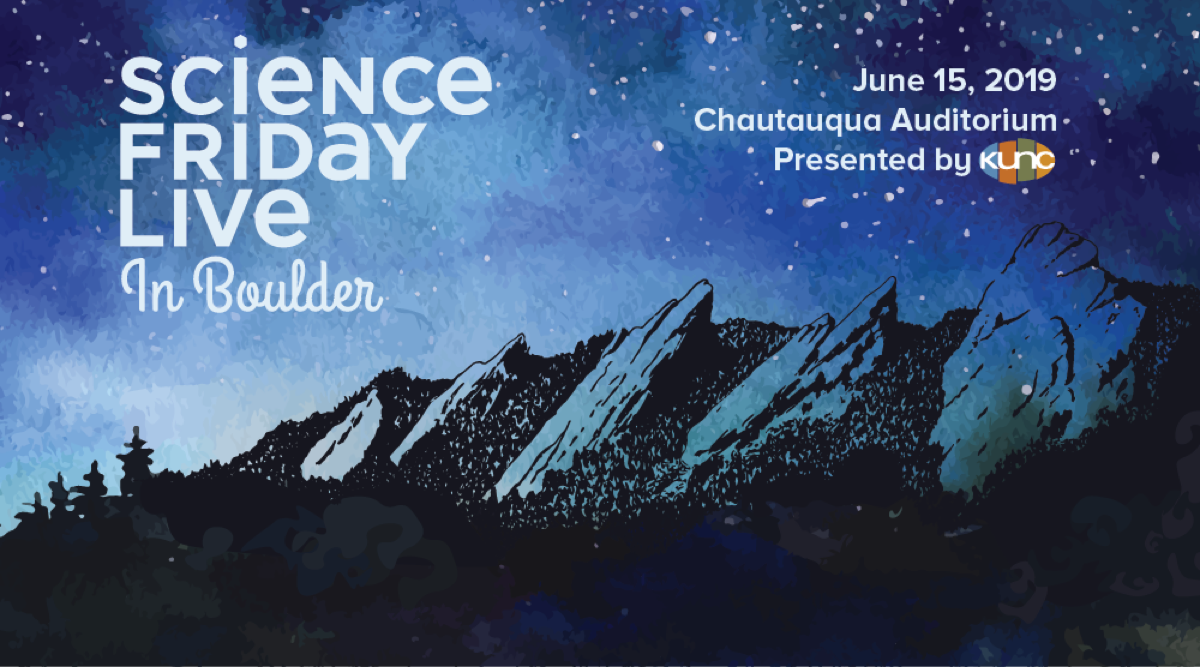Science Friday Live In Boulder
On Saturday June 15th, Ira Flatow and the Science Friday crew are heading to Boulder, Colorado.

When: June 15, 2019, Doors: 6:00 PM Showtime: 7:00 PM
Where: Chautauqua Auditorium, 900 Baseline Road, Boulder, CO
Tickets: SOLD OUT
Join Ira Flatow and the rest of the SciFri crew as they hit the road to uncover and report on the amazing science news and stories happening in your local area. This is your chance to look behind the curtain of your favorite national radio show and participate in a special live performance with the scientists and conversations you love.
This 90-minute program typically features live music, props, video screenings, and demonstrations. And as a bonus, the event will be recorded so you can be a part of a future broadcast!
Here’s what we’ll be talking about:
When wildfires rage in the West, Colorado State University atmospheric scientist Emily Fischer hops into a plane, and flies straight into the smoke. The plane is a flying chemistry lab, studded with instruments, and Fischer’s goal is to uncover the chemical reactions happening in smoke plumes, to determine how wildfire smoke may affect ecosystems and human health.
Pikas used to roam high mountain habitats across the West. Now confined to a few mountain ranges, these tiny rabbit relatives may be facing rapid extinction due to warming temperatures. Population biologist Chris Ray at University of Colorado Boulder is tagging and tracking the pikas to investigate how closely their fate is tied to climate change—and whether there’s a way to save them.
The official U.S. time is kept on NIST-F1, a cesium fountain clock, located right in Boulder. Elizabeth Donley, acting head of the Time and Frequency Division at the National Institute of Standards and Technology, is charged with keeping the official U.S. time on track—and with using advanced physics to develop ever more precise and stable ways to measure time.
Colorado was one of the top apple growing states in the late 1800s. Drought and the creation of the red delicious apple in Washington state wiped out Colorado’s orchard industry, but apple trees are still scattered throughout the area. Plant ecologist Katharine Suding created the Boulder Apple Tree Project to map out the genetics of the historic orchards to study disease resistance and study the varieties of apples in the state. Plus, cider maker Daniel Haykin talks about the combination of sugar, yeast and apples that go into making the bubbly beverage.